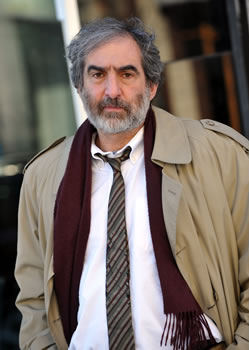|
I spent the academic year 1971-72 as a graduate student in creative writing at Hollins College. A story told there to and among the aspirants, though doubtless apocryphal, had by then acceded to the status of wisdom literature, and had come to serve the program as a kind of generative myth. I'll give a bare-bones version here.
In the mid 1950s Hollins invited to its literary festival Katherine Anne Porter, who would then have been in her sixties, all her best work behind her, and Flannery O'Connor, in her early thirties, having just published her first collection of stories. (Porter would outlive O'Connor by nearly two decades.) Speaking on a panel before a packed house of relatively literate southern belles, both Porter and O'Connor addressed a question I was recently asked by the Teachers and Writers Collaborative in New York City: "How do you start a new piece?" In every version of the story, Porter appears in scarlet cape and broad-brimmed scarlet hat, while O'Conner wears a tartan kilt and a Fair Isle sweater over a white broadcloth shirt with a Peter Pan collar. (I heard several versions at Hollins, but in every version all the details prejudice the point in O'Connor's favor.)
Porter spoke first. She read a prepared and eloquent and lengthy disquisition—the length varies with the version, but is always implicitly excrescent—on how she went about preparing to write a piece of fiction. Not a word of what she said is ever included in the telling of this tale. When Porter had finished, there was a "smattering" (that's always the word) of applause. Then "Miss O'Connor," as she is called by rule, approached the podium. She adjusted her horn-rimmed glasses, composed herself, stood quietly. The question was repeated by a moderator who is never named. If all this really happened, it might have been George Garrett, or Louis D. Rubin. "Miss O'Connor. How do you start a new piece?" O'Connor looked down, then looked out at the audience. She smiled sheepishly, slyly, and said, "Well, I just set it out like an old coon dog and see where it goes." The crowd went wild. Because, one is meant to understand, they had heard the truth.
(In a letter to Bernard Malamud, written in 1953, Saul Bellow, in the wake of his great Augie March, observes: A novel, like a letter, should be loose, cover much ground, run swiftly, take risk of mortality and decay. I backed away from Flaubert, in the direction of Walter Scott, Balzac and Dickens. Having brought off my effort as well as I could, I must now pay the price. You let the errors come.)
I very much admire O'Connor's work, as I admire Porter's. And though Bellow is one of my heroes, with regard to the question posed, I find myself in camp with Porter (and Flaubert, and the unmentioned James), because whatever it was she said, it was apparently elaborate.
Here's approximately what I told the Teachers and Writers Collaborative:
I no longer write short stories, so starting "a new piece" means for me starting a novel, the writing of which I know will take me two or three years. (Porter wrote one not very good novel. O'Connor wrote two novels, but her reputation rightly rests on her short fiction. Bellow was a master of the novel form.) I start very slowly, and don't actually begin to write the book until I can't stand not to write it. This method derives from my sense that one can start a book too soon, but almost never too late. I think it is also true that if you wait until you know enough to start, you never will. What I do instead of writing is to live with the book for a couple of months, often longer than that. I might begin with a rudimentary conception, something I can, if pressed, articulate in a couple of sentences. Then I write down everything I know, or think I know about the book, without worrying about contradicting myself or getting it wrong. Say that gives me twenty to thirty pages of notes. I print out these notes, then have a conversation with them in the margins. I incorporate, or accommodate, the marginalia, print the notes out again, and have another conversation with them. I might do this thirty times, trying each time to deepen and complicate and elaborate my understanding of the book. It is satisfying, if a bit delusory, to watch the printed pages of non-book stack up. About this stalling I tend to be methodical. I take walks, with and without my dog. Run errands. Work out. Read. Involve myself overmuch in my children's lives. I do whatever else I can think to do to delay writing the actual first sentence, which, oddly, I never revise, and which I let myself do only when I can complicate and elaborate things no further, and when I begin to show signs of incipient psychosis, and when my wife points out that I am insufferable. Then I might set it out like an old coon dog, with at least some sense of where it could go, ready to follow.
|


